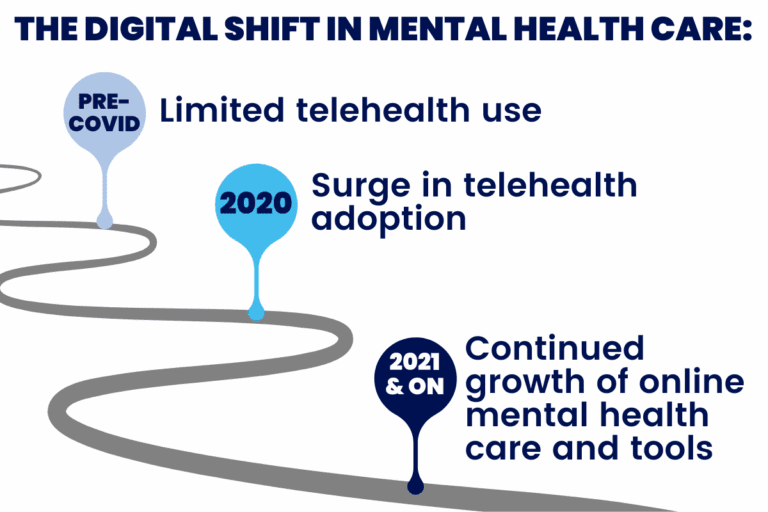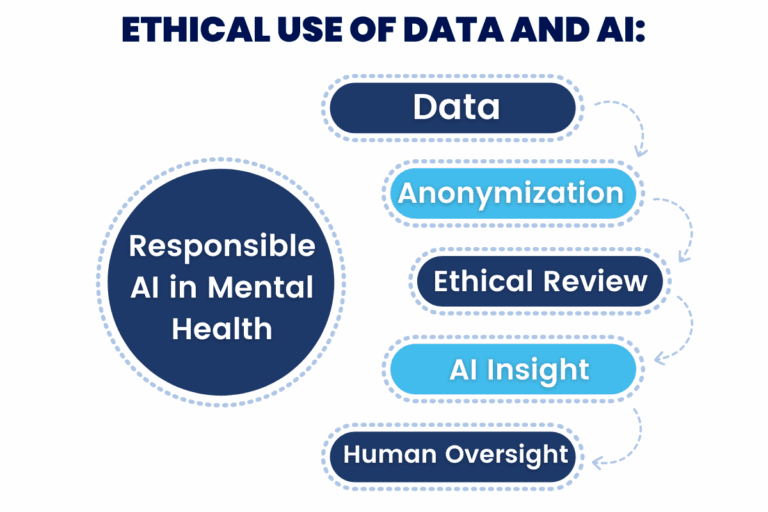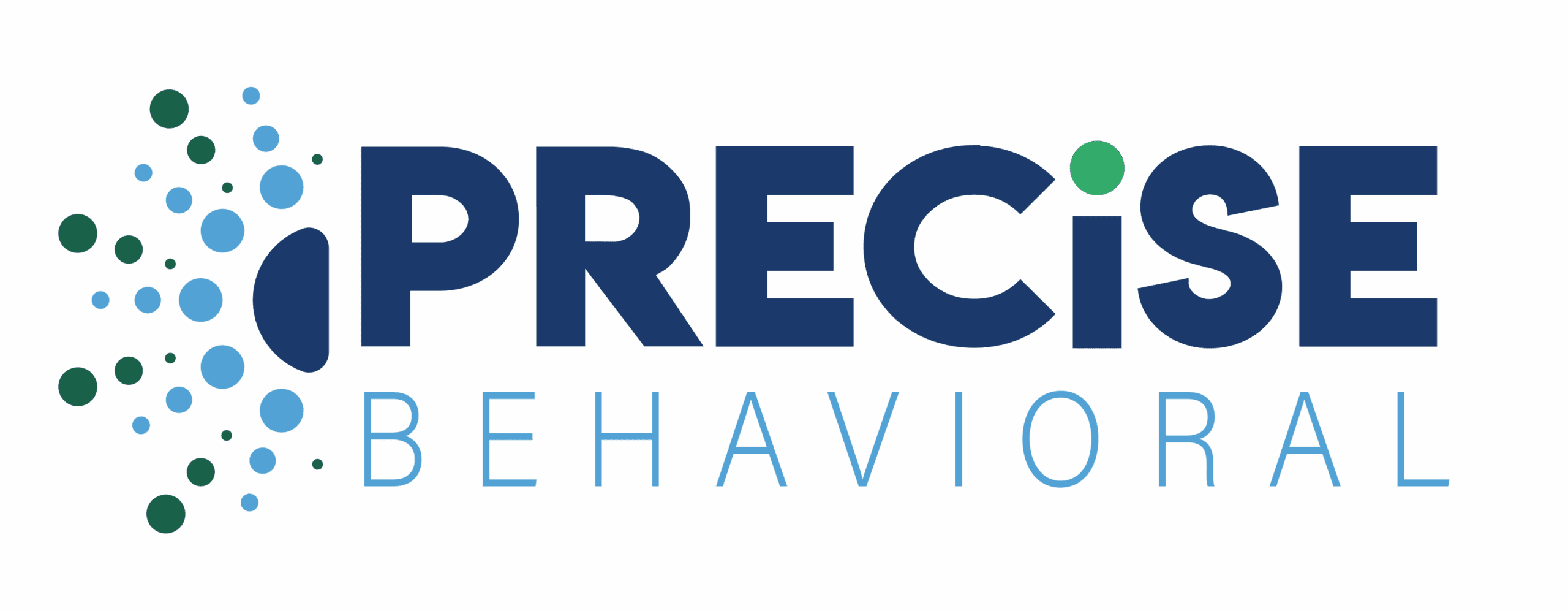Trends in Mental Health Data Privacy and Security: Why It Matters More Than Ever
The way people access mental health care is transforming faster than ever before, making the urgency to regulate and protect patients greater than ever.
Before the COVID-19 pandemic, telehealth was not widely used, and few studies had been conducted on it. However, this global public health emergency seemingly shifted circumstances overnight. Eased regulations and equalized reimbursement for virtual visits led to a dramatic surge in telehealth adoption, including in mental health care (Shaver, 2022).
And telehealth didn’t end when the pandemic did; instead, it continued to soar. The present and future of mental health is digital. From telehealth counseling to mobile apps, more people are seeking support through technology than ever before.

For investors, this growth signals enormous opportunity. But it also highlights one of the most urgent challenges in digital health today: protecting patient data with the highest level of care.
At Precise Behavioral, we’re clinician-owned. Our CEO and many other support staff are licensed clinicians. That means we don’t just see data as “user information.” We see it as the stories, vulnerabilities, and trust of real people who’ve chosen to let us support them. That perspective guides how we approach our online mental health counseling and digital mental health services, ensuring every platform and interaction protects privacy while delivering clinically effective care. By embedding these services into our model, Precise Behavioral makes secure, ethical, and patient-centered digital mental health care the standard.
1. Rising Regulatory Standards
Governments worldwide are raising the bar for health data privacy. In the U.S., HIPAA continues to be the baseline. Yet, some states are taking matters into their own hands and going a step further. They can hopefully serve as inspiration for others to follow. For example, the California Consumer Privacy Act of 2018, which gave individuals greater authority over how their personal data is collected and used by companies, was amended in 2023 to strengthen the protection of personal information (California Department of Justice, Office of the Attorney General, 2024).
Globally, regulations such as GDPR in the European Union are setting stricter standards for data storage, consent, and transparency (European Union, n.d.).
Companies that proactively meet evolving privacy regulations are not only compliant, but they are building long-term resilience and credibility in this digital age.
2. Increasing Patient Awareness and Demand for Transparency
Patients are savvier than ever about where their data goes. Surveys show that mental health app users often worry about their private data being sold or shared without consent (Koh et al., 2022). And they have reasons for concern. Research shows that many mental health apps collect excessive permissions, use weak encryption, and sometimes expose user data through insecure logs and web requests. These issues, along with third-party data sharing and user profiling, highlight the urgent need for stronger privacy safeguards and more informed developers (Papageorgiou et al., 2022).
This means that transparency reports, clear privacy policies, and user-centered consent processes are becoming non-negotiable. At Precise Behavioral, we build transparency into all aspects of our services. From online mental health counseling to integrated behavioral health platforms, patients can access clear privacy policies, understand how their data is used, and receive secure, HIPAA-compliant care. This ensures trust is maintained across virtual mental health services.
Trust drives engagement: companies that prioritize clear, patient-centered data practices will stand out in the digital behavioral health world.
3. Security Threats Are Evolving
Cybersecurity threats are escalating, with healthcare data breaches reaching record highs in recent years. After 57 million records were exposed in 2022, breaches surged to 168 million in 2023 and shot up to 275 million in 2024, affecting an estimated 82% of the U.S. population (HIPPA Journal, 2025).
Mental health data, in particular, are among the most sensitive types of information. Breaches don’t just expose sensitive information; they can erode patient trust, disrupt care continuity, and cause lasting psychological and financial harm. For providers, these incidents can lead to severe reputational damage, regulatory scrutiny, and long-term loss of credibility within the digital health ecosystem.
At Precise Behavioral, we have precautions in place to make sure we are best armed against any threats to patient security. Employees are HIPAA-certified, data is encrypted, and our systems undergo continuous monitoring and third-party audits. Automated tools are designed with security as the default, minimizing exposure risks.
Strong cybersecurity measures are, of course about protecting patients, but they also preserve brand value and create a competitive edge in this oversaturated market.
4. Ethical Use of Data and AI
With the rise of AI-powered mental health tools, ethical data practices are under the microscope. How training data is collected, anonymized, and applied can mean the difference between innovative breakthroughs and public backlash. A 2024 systematic review highlights that responsible AI use in mental health requires attention to privacy, consent, bias, transparency, human oversight, and ongoing evaluation. By following ethical frameworks, engaging stakeholders, and continuously monitoring outcomes, developers can ensure AI interventions—like chatbots or AI-enabled devices—are deployed in ways that protect users, promote fairness, and maximize benefits while minimizing harm (Saeidnia et al., 2024).
At Precise Behavioral, we leverage AI to enhance care while keeping patient safety and privacy at the forefront. Our AI tools assist clinicians in identifying patterns, supporting decision-making, personalizing treatment, and always using securely stored data. Every AI-driven process is guided by clinical oversight, ethical standards, and continuous evaluation, ensuring that technology supports—not replaces—the human judgment and compassion essential in mental health care.
Ethical AI is a differentiator: integrating responsible AI into platforms fosters trust among regulators, clinicians, and patients.

5. Aligning Privacy With Clinical Integrity
For us at Precise Behavioral, data privacy isn’t just a tech issue—it’s a clinical one. Patients share the most intimate details of their lives with mental health providers. Extending that same level of confidentiality into the digital space is an ethical mandate.
In the U.S., there’s no overarching federal law governing these apps, and many continue sharing sensitive user information with advertisers and social media platforms despite allures of confidentiality, highlighting the urgent need for responsible data handling (Olech, 2025).
While many mental health apps aren’t bound by HIPAA and can legally share user data, Precise Behavioral is committed to maintaining the highest standards of patient confidentiality. Privacy and data security are our top priorities. We are fully HIPAA-compliant, ensuring that every piece of sensitive information is protected to the highest standards. Beyond compliance, our clinician-led approach means we handle data with the same care and confidentiality as in-person therapy—recognizing that behind every screen is a real person entrusting us with their story. From secure storage to encrypted communications, safeguarding our patients’ information is central to everything we do.
Integrating privacy with clinical practice ensures credibility and defensibility for behavioral health services in an increasingly digital marketplace.
Building a Safer Digital Future
Digital mental health is poised for massive growth, bringing new opportunities and greater responsibility. Investors must assess not only scalability and innovation but also how companies safeguard privacy and maintain data security.
At Precise Behavioral, we’re building with both the investor’s perspective and the patient’s trust in mind. Data privacy and security aren’t checkboxes—they’re the foundation for sustainable, scalable, and ethical online behavioral health technology.
Because in the end, safeguarding patient trust is the best investment strategy of all.
Sources:
California Department of Justice, Office of the Attorney General. (2024, March 13). California Consumer Privacy Act (CCPA). https://oag.ca.gov/privacy/ccpa
European Union. (n.d.). Data protection under GDPR. Your Europe. https://europa.eu/youreurope/business/dealing-with-customers/data-protection/data-protection-gdpr/index_en.htm
HIPAA Journal. (2025, January 28). 2024 Healthcare data breach report. https://www.hipaajournal.com/2024-healthcare-data-breach-report/
Koh, J., Tng, G. Y. Q., & Hartanto, A. (2022). Potential and pitfalls of mobile mental health apps in traditional treatment: An umbrella review. Journal of Personalized Medicine, 12(9), 1376. https://pmc.ncbi.nlm.nih.gov/articles/PMC9505389/
Olech, J. (2025, August 22). Privacy dangers of mental health apps. Private Internet Access. https://www.privateinternetaccess.com/blog/privacy-dangers-mental-health-apps/
Papageorgiou, A., Strigkos, M., Politou, E., Alepis, E., Solanas, A., & Patsakis, C. (2022). Security and privacy analysis of mobile health applications: The alarming state of practice. BMC Medical Informatics and Decision Making, 22(1), 102. https://pmc.ncbi.nlm.nih.gov/articles/PMC9643945/
Shaver, J. (2022). The state of telehealth before and after the COVID-19 pandemic. Primary Care, 49(4), 517-530. https://pmc.ncbi.nlm.nih.gov/articles/PMC9035352/
Saeidnia, H. R., Hashemi Fotami, S. G., Lund, B., & Ghiasi, N. (2024). Ethical considerations in artificial intelligence interventions for mental health and well-being: Ensuring responsible implementation and impact. Social Sciences, 13(7), 381. https://www.mdpi.com/2076-0760/13/7/381
Seyfarth Shaw LLP. (2023, October 2). 50-State survey of health care information privacy laws (2023-2024 edition). https://www.seyfarth.com/a/web/bhRXWBkMif111KfVwiQN6V/50-state-survey-of-health-care-information-privacy-laws-2023-2024-edition.pdf
Written by Emily Yi
About the Author
Emily is a Behavioral Health Consultant at Precise Behavioral, Inc., and a Licensed Clinical Social Worker (LCSW). She specializes in supporting emotionally intense teens, adults, and families through creative therapy.
Editorial Contributors
This piece was edited by Greta Baker.



